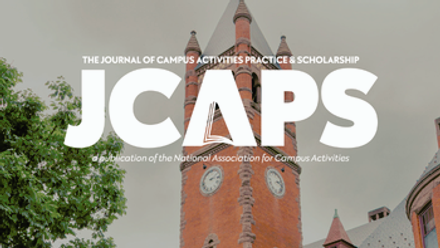NACA Competencies for Diversity and Inclusion
The NACA competencies are organized by domains of application (knowledge/practice, culture, engagement/composition, and advocacy/social justice) and have additional tags depicting learning level (knowledge, comprehension, application, and analysis). These domains and learning levels are not tied to specific jobs or NACA member types, but are meant to be applicableto a variety of audiences within the field of campus activities: school members at the undergraduate, graduate, faculty, and staff levels; associate members at the regional and national levels; volunteers; NACA Office staff; and non-members.
The ACPA/NASPA professional competencies offer a baseline of knowledge and skills for student affairs professionals, designed to “lay out essential knowledge, skills, and dispositions expected of all student affairs educators, regardless of functional area or specialized within the field” (2015, p. 7). The NACA competencies reflect further knowledge, skills, and abilities believed to be important for all individuals working within the field of campus activities, and can be utilized in their daily work (e.g., event planning, leadership programs, marketing and communications, hiring/recruitment/selection processes, etc.). The NACA competencies are not meant to be a checklist of professional attributes, but rather a guide to use in developing one’s professional and personal growth. NACA encourages individuals to challenge themselves to be honest in their self reflection regarding the knowledge, skills, and abilities they need to obtain, and to seek opportunities to learn and advance themselves within a particular domain or competency.



